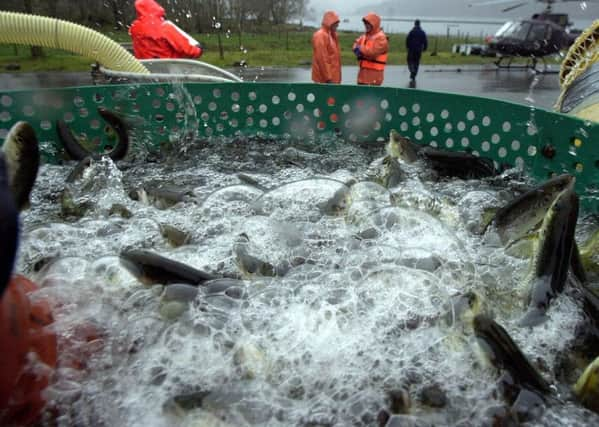Salmon resistant to sea lice ‘could be bred’


Chemical treatments are the current mainstay of controlling infection but an increasing drug resistance among sea lice means an alternative is urgently required, scientists warned.
It is needed to reduce the threat posed to the welfare of farmed Atlantic salmon and the sustainability of fish farming across the world, they said.
Advertisement
Hide AdAdvertisement
Hide AdThe team at the University of Glasgow said it has developed a simple protocol to breed fish resistant to sea lice.
The researchers have also produced a mathematical model to predict the response to selection.
Results have indicated that fish respond quickly to selection and resistant fish populations will require substantially fewer treatments to control lice.
The study, published in the Royal Society journal Interface, found in some instances as few as 10 generations may produce fish that naturally control infection and seldom require treatment
Professor Michael Stear said: “Sea lice infection is a major threat to the health of farmed salmon and to the fish farming economy.
“Our research has produced a practical tool for quantifying resistance to sea lice and shown that selection could substantially reduce the need for drug treatments.
“Selective breeding for sea lice resistance should reduce the impact of sea lice on fish health and thus greatly improve the sustainability of Atlantic salmon production.”